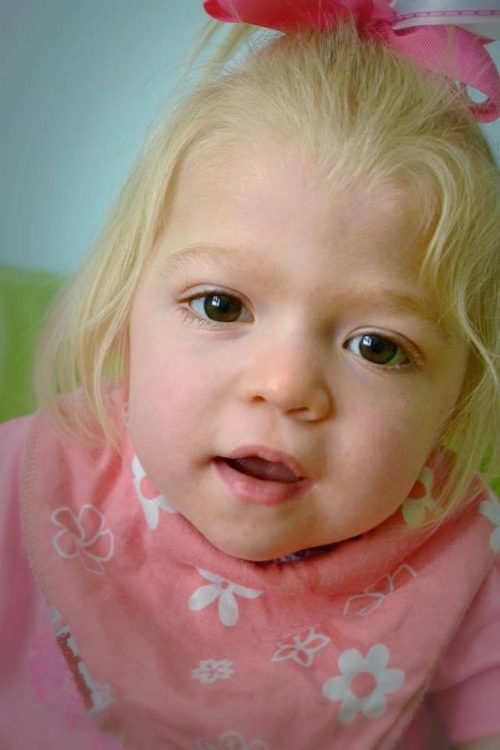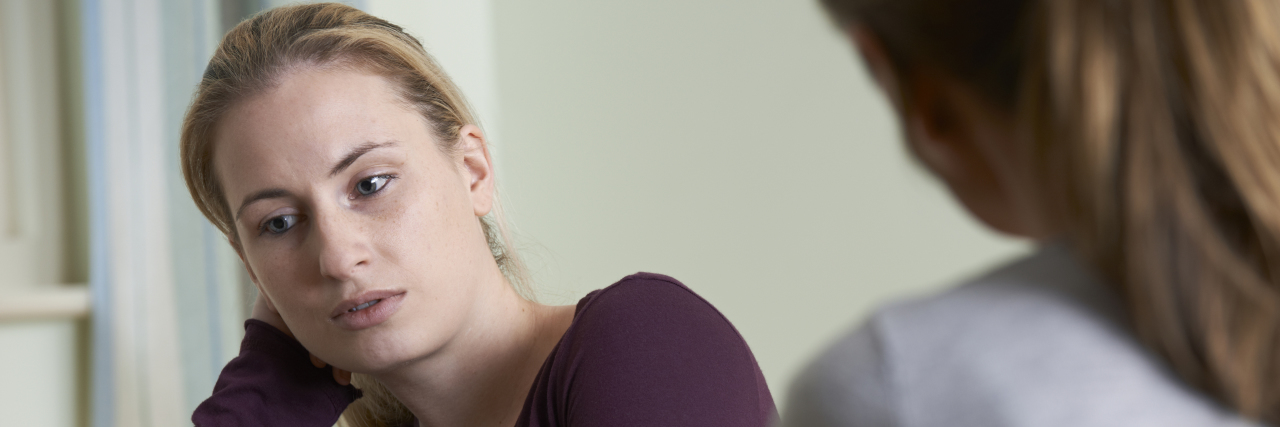I see you over there, casually glancing at my seemingly perfect child sitting quietly in her bulky, specialized chair. You are probably wondering how best to approach me — what to say to get the conversation started. I see your eyes brimming with questions, and conclusions. It’s nice to meet you too.
This is my child, she has a disease that is genetic.
No, not contagious, genetic.
I’m so sorry you know someone once who had a child with a terrible cancer. Cancer is truly and completely awful. I hate it.
My child is actually really sick too — dying in fact. No, chemotherapy won’t work. Actually, there is no treatment available.
No, the government isn’t working on finding a cure for this disease. The ice bucket challenge? Oh yes! That was fabulous — but not for this disease.
Have I tried changing her diet? Actually, she can no longer swallow. All of her nutrition goes through a tube directly into her stomach.
Infusing oils? Yes, I love essential oils. Unfortunately, she is still dying without a treatment.
Oh no. Please don’t call me strong.
How do I do it? The same way you do — I get up every morning, one foot on the floor and then the other.
How am I coping? I’m not sure I am. One minute I’m angry, the next I’m devastated. Then it’s like this is all just a dream I’m going to wake up from. I can’t feel everything at once or I might explode — so I just keep breathing, one breath at a time.
I’m handling it better than you would? I wish I had some sort of extra power, but actually, I’m just like you. I keep going with what life has given me, just like you would.
How long does she have to live? I don’t know. How long do any of us have? None of this has gone as I expected, so maybe I should stop guessing how it will go in the future. The future is scary and dark sometimes when I think about it. Grief threatens to consume me in the future. So I just focus on now, and what I can do today to keep moving forward.
How common is her disease? It’s rare; there are less than 100 known cases.
I know. I’m thankful too, but even one child dying so young is one too many.
I must have incredible support? Actually, people seem to disappear when they find out you have a child who is ill. Like somehow, they don’t know what to say, so they think that saying nothing at all is the best thing.
Yes, I’m sure they mean well too, but it isn’t the best thing. There is nothing you could say to make things better, and they are already at their worst. It would just be nice to have people around.
I take care of a lot? Oh no, this child isn’t my only child. I’m a mother to other children who need me too. I have a husband, a house, a job, a family — so many things in a day to keep track of I can’t remember why I’m even here since we started talking.
It’s a shame there is nothing we can do for my dying baby? Oh, but there is so much to do. We can connect with other families, join together our voices, demand research, work towards treatment, and hopefully someday save lives! The science is there. The treatment could be made. If only we had more pull in the media, or a way to raise money quickly enough to pay for the treatment to get out of the lab and into my child.
Thank you for your thoughts and prayers. Yes, I will keep going. Sure, I’ll try to stay positive. Thanks for looking us up on Facebook. It was nice to meet you too.
Written in observation of my friend Amber Olsen as she fights to save her daughter’s life. Willow Cannan has multiple sulfatase deficiency (MSD), a rare genetic disease which causes a build up in cellular waste in the body, ultimately leading to death normally before age 10. Amber has started the first foundation in the United States to specifically advocate for MSD, and fight to bring the existing research out of the lab and into the children who are fighting for their lives. To follow Willow’s story, find her on Facebook at “Cure MSD – Warriors for Willow.”
 We want to hear your story. Become a Mighty contributor here.
We want to hear your story. Become a Mighty contributor here.
Getty Images photo via Highwaystarz-Photography

